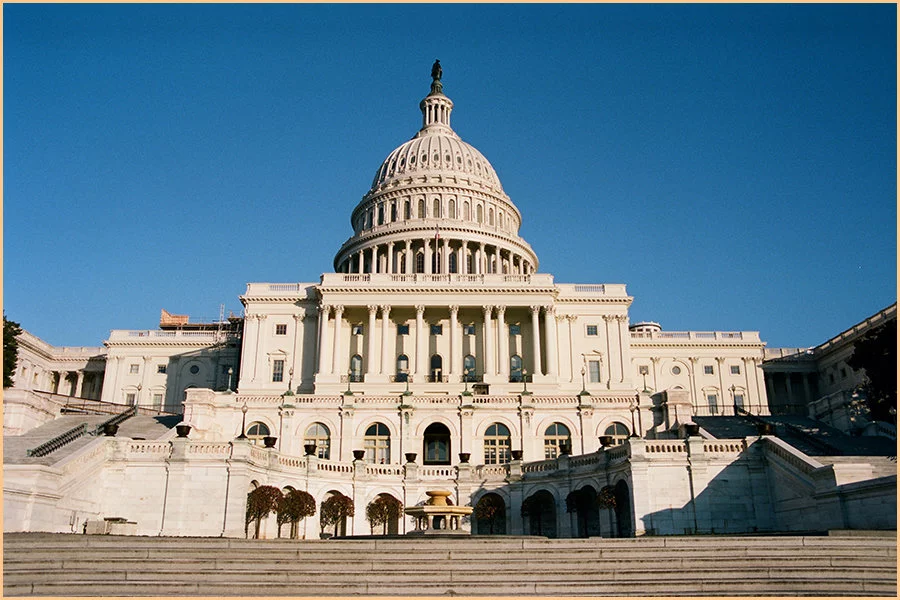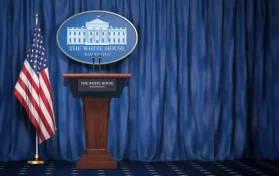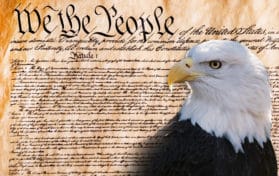
As stipulated by the Constitution of the United States, the Speaker is the parliamentary leader of the House of Representatives.
The Speaker is also the political leader of the House. A sitting speaker bears several responsibilities and powers, all of which have been stipulated, outlined, and enshrined in the Constitution.
Throughout history, the speakers of the House have had conflicts with parties and state organs during their tenure.
It has prompted action to oust and replace the Speaker. It is a complicated process that requires a special resolution. So,
Who can fire the Speaker of the House?
No individual can fire the Speaker of the House. The doctrine of separation of powers must be upheld. As a consequence, neither the executive nor the judiciary can oust a sitting speaker of the House. Congress can only eject a speaker through a special resolution.
How A Sitting Speaker Of The House Of Representatives Can Vacate Office
As stated earlier, there are circumstances under which a speaker can vacate office upon the passing of a special resolution.
A special resolution is supported by a two-thirds majority of the members of the House of representatives. On the other hand, an ordinary resolution is a resolution supported by a simple majority, 50%+1.
The procedure of terminating a sitting speaker is as follows:
A member of the House of representatives can file a privileged motion to vacate the chair. If a special resolution supports the motion, the office is deemed vacant.
The term “privileged motion” has two implications, that is:
- The majority can not obstruct the motion.
- Voting on this motion must be done no later than 48 hours from the time it was tabled.
Filing a motion to vacate the chair does not necessarily have to be filed as a privileged motion. It was the case in 2015 when Mark Meadows filed the motion.
The last Speaker to be ousted was Joseph Cannon in the year 1910. George Norris filed the motion to vacate the chair.
This motion garnered the support of 149 Democrats and 42 Republicans. The impeachment effectively ended Canon’s speakership. No other speaker has been ousted since then.
Qualifications For One To Be A Speaker Of The House Of Representatives
Before you are allowed to become the political and parliamentary leader of the House of Representatives, there are some qualifications that you ought to meet.
These requirements are similar to those of being a member of the House. These requirements are:
1. Age
To become a speaker of the House, you must have attained a minimum age of 25 years. It is also the minimum age requirement for being a member of the House of Representatives. The age qualification was adopted by Congress on the 22nd of June, 1787. The House has since ratified it.
2. Citizenship
A speaker must have met the congressional requirement for citizenship. To be a speaker, you must be a citizen of the United States of America. Citizenship can either be by birth or as a consequence of naturalization.
Congress sets the qualifications for citizenship by naturalization, and they can be adjusted.
3. Inhabitance
At the time of the election, the Speaker must inhabit a state within the United States of America. The election to be the Speaker’s position can be voidable by law if it is proven that the candidate was not an inhabitant.
4. Regarding treason
According to the Constitution of the United States, any person who commits acts of treason forfeits their eligibility.
These acts include providing aid or comfort to enemies of the United States or participating in insurrection. It is outlined in Section 3 as a condition for disqualification for holding public office.
5. Oath of office
The Speaker of the House of Representatives must take an oath of office. Taking an oath is done to affirm their unequivocal will to perform the duties of the office.
Failure to take an oath of office invalidates the position of an elected speaker. If the Speaker is elected in absentia, they must take an oath of office in the first sitting of the House.
6. Impeachment
As stipulated by the Constitution of the United States, one cannot continue to hold public office upon impeachment.
Consequently, anyone who is impeached is ineligible from holding any other public office in the future. It includes the office of the Speaker of the House of Representatives.
7. Holding federal office
As enshrined under the doctrine of Separation of Powers, one cannot serve as a member of the House if they hold any other federal office. It is also applicable to the office of the Speaker.
Holding any other federal office serves as an actual conflict of interest. The legislature must operate without being under the direct influence of any other branch of government. This is highlighted under Article 1 of the Constitution.
Who Chooses The Speaker Of The House Of Representatives?
Members of Congress elect the Speaker of the House of Representatives. Selection is made at the beginning of each congressional term.
The elected members of Congress each provide their suitable candidate. The Speaker will be elected from the candidates via an ordinary resolution.
Once elected, the speaker proceeds to take an oath of office. A speaker of the House of Representatives does not have to be a member of Congress. It has, however, been the case throughout the history of the United States.
A Speaker who is a member of the House of Representatives still represents their Congressional District. Unlike in most countries, the Speaker of the House does not preside over debates in Congress.
Powers And Duties Of The Speaker
The duties and powers of the Speaker of the United States have been specified in the Constitution. They include:
Administering Oaths of office
Before serving as members of the House of Representatives, the Speaker administers oaths to members-elect. Only upon taking oaths can members-elect be allowed to serve in the House of representatives.
Assigning members to temporary committees
The Speaker of the House appoints members to temporary committees within the House of representatives.
These sub-committees are responsible for formulating specific legislation rather than general legislation. It is a quick and effective way to make laws.
Signing bills passed by Congress
Once the legislature has passed bills, the Speaker of the House signs them. The bills are then ready for presidential assent, upon which they become laws—the speaker signs the bills to indicate that the requisite procedures were adhered to in the legislative process.
Next in line for the presidency
It occurs if both a sitting president and vice president are incapacitated or unable to fill the position of the president. The Speaker of the House of Representatives shall take up the position of the president.
Appointment of a speaker Pro-Tempore
Appointment pro-tempore is an appointment made by the Speaker to stand in temporarily if the Speaker was to vacate office suddenly.
It is a contingency measure put in place to prevent a vacuum in the position of the Speaker under unforeseen circumstances.
Limitations of the powers of the Speaker
1. Setting house rules
It is the digression of the members of the House to decide which rules set by the Speaker are to be followed. Selecting House rules ensures that the process is democratic.
2. Withholding the referral of a bill
The Speaker has the digression not to refer bills to a particular committee until they study it and discern its proper jurisdiction.
3. Following house presidents
A speaker has the authority to issue an overturning president. The general rule is not to overturn presidents, especially ones that apply to a prevailing situation.
4. Regarding special orders
The Speaker is under no obligation required to provide answers to any hypothetical queries related to special orders.
5. Exhibits
The Speaker of the House of Representatives has no authority to restrict members from using exhibits within Congress. The members of the House shall decide whether the use of exhibits is permissible.
6. Queries regarding hypothetical scenarios
The Speaker is under no obligation required to answer questions about hypothetical facts. The rule applies to questions regarding probable future events.
Conclusion
An individual can not fire a sitting Speaker of the House of Representatives. The Constitution ensures that the concept of separation of powers is adhered to.
The doctrine of Checks and Balances also further limits the extent to which one branch of government can influence the other.
For a Speaker to be removed from office, there has to be a special resolution. It means that Congress can only oust a sitting speaker of the House of Representatives if two-thirds of the members of the House support the motion for removal. The motion is generally tabled as a “motion to vacate the chair.”





